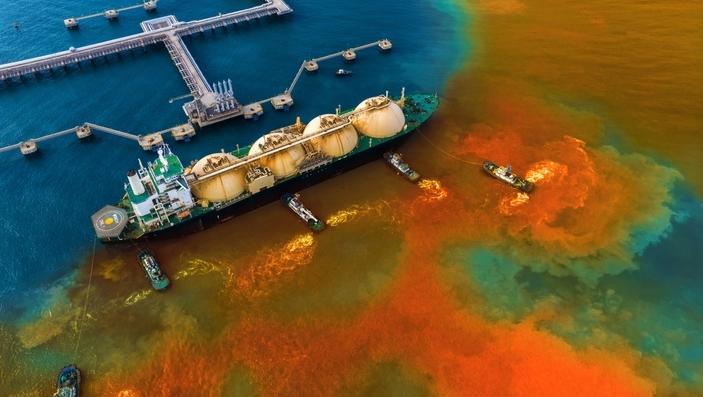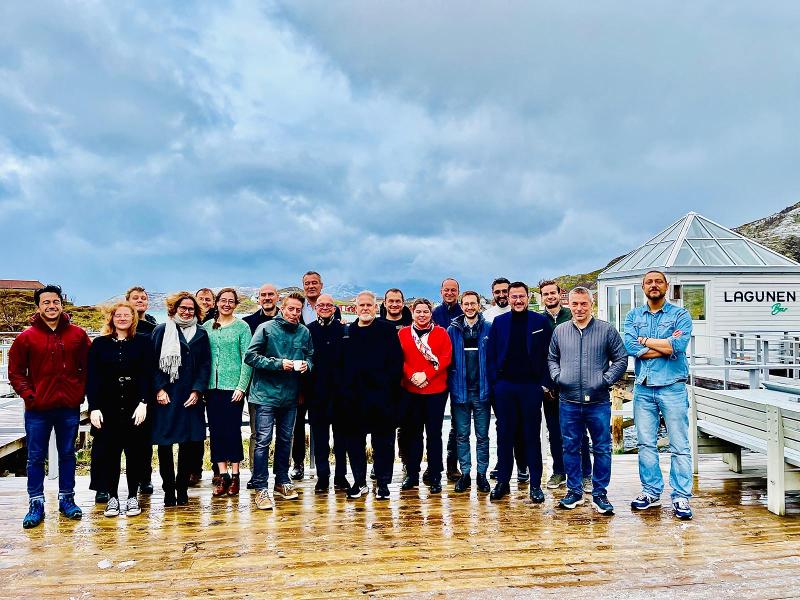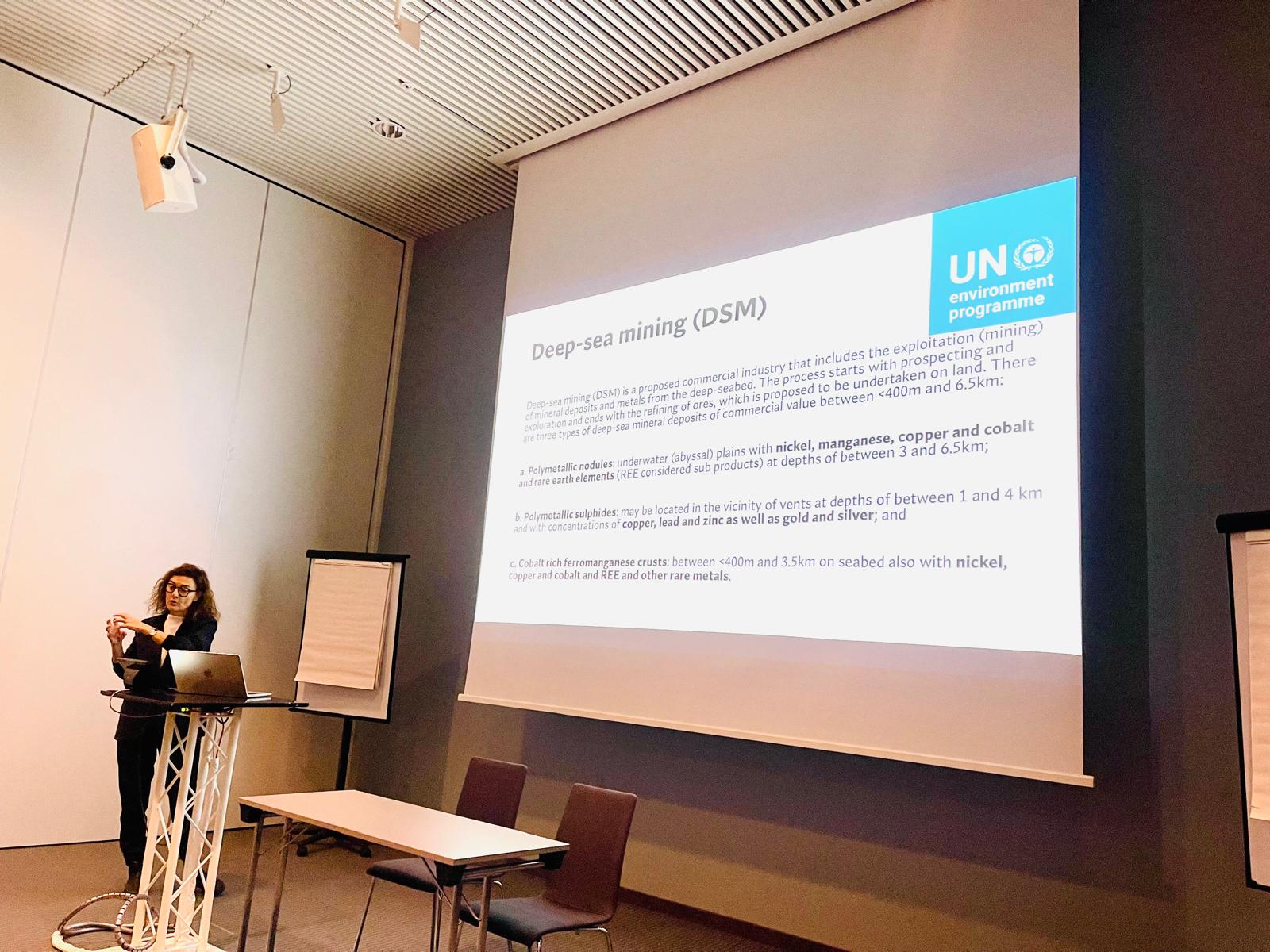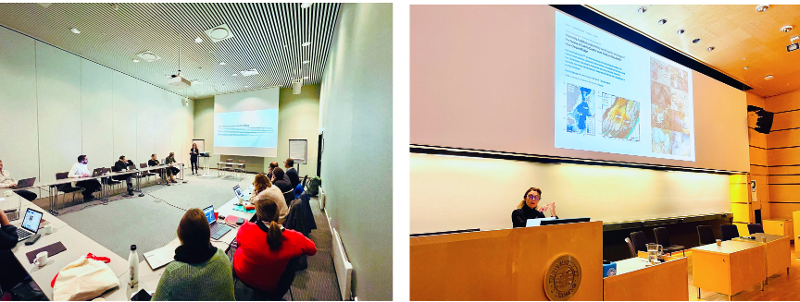
The ECO-CRIM-NET: A strategic initiative to bring together scientists and researchers to fight against environmental crimes.
The inaugural meeting to establish the ECO-CRIM-NET (Network for the Investigation and Prosecution of Crimes Against Ecosystems) took place at the Arctic University of Norway in Tromsø from October 28 to 30, 2024. The project is funded by the Norwegian Research Council and is organized by the Research Group on Crime Control and Security Law at UiT, The Arctic University of Norway, in collaboration with the University of Oslo (UiO) and the University of Copenhagen.This initial conference provided an excellent opportunity to explore the nature of environmental crimes and their impact on our planet and ecosystems. The successful meeting brought together experts to raise awareness and take active steps toward a more sustainable future.
by Valentina Lanci, Giuliana Panieri, Nandor Knust
We are all likely aware of the urgent challenges presented by climate change, pollution, and the alarming decline in biodiversity—issues collectively known as the triple planetary crisis. However, it is essential to recognize that various illegal activities, commonly referred to as environmental crimes, significantly contribute to exasperating these critical threats to our planet.

So, what are environmental crimes, and why do they matter?
Environmental crimes are serious offenses that can have severe consequences for economies, national security, the environment, and human health.
Environmental crimes encompass a wide range of illicit activities that contribute to pollution and the degradation of natural resources. These actions may include the illegal transportation or disposal of waste, the trade or possession of protected or prohibited species of flora and fauna, and the unlawful extraction of natural resources. Specific examples of these illegal activities include illegal logging, poaching, unsustainable fishing practices, unauthorized collection of flora and fauna, and illegal mining operations.
The consequences of these various forms of environmental crime are severe, endangering resource sustainability, leading to ecosystem destruction, and contributing to species extinction. Furthermore, these activities pose significant risks to human health, result in economic losses, jeopardize livelihoods, and threaten climate stability.
In addition to their detrimental effects on the environment, these crimes have profound implications for human society. They can disrupt social order by empowering armed groups and exacerbating conflicts, undermine national security by destabilizing countries, and impede sustainable development by increasing poverty and inequality.
Preserving natural resources through the protection and conservation of nature is essential to support development opportunities for current and future generations.
So, why is it important to create the ECO-CRIM-NET?
Establishing criminal responsibility for these types of crimes poses significant challenges for both national and international law enforcement agencies. These challenges arise from the complex nature of the crimes, their connections to transnational organized crime, and the difficulties in establishing causality and evidence due to advancements in forensic methods.
The project's overarching objective is to establish the “ECO-CRIM-NET-Lab” as a permanent “law and science interface” that facilitates a direct and effective exchange between law enforcement agencies and other relevant disciplines with the aim of enhancing the national, regional and international system of crime control against crimes against ecosystems and combating large scale environmental destruction by criminal actors.
By taking the "Realpolitik" approach, this project departs from a purely legalistic perspective, integrating computer science, political science, sociology, biology, geology, anthropology, and criminology into the project. This approach will present a new and unique way of developing new models of crime control by integrating new technologies into the monitoring, investigation, and prosecution of crimes against ecosystems.

Giuliana Panieri, PI of the UArctic project EXTREMES, participated in the conference and presented the case of extreme environments in the Arctic, like cold seeps and hydrothermal vents. These are critical sites at the bottom of the ocean where oil and gas exploration is expected to increase, and deep-sea mining activities are likely.


Nandor Knust, coordinator of ECO-CRIM-NET and host of the network's first expert meeting, stressed that scientific experts such as Ms Panieri are key to a new form of environmental crime control. He asserted, “Only a comprehensive inter-disciplinary approach will allow the necessary development of a truly new form of criminal forensics. The establishment of the "ECO-CRIM-NET-Lab" as a permanent "interface between law and science" will assist national and international crime control systems in establishing chains of evidence by providing the necessary information to establish the needed causality”.
To know more about environmental crimes:
https://www.youtube.com/watch?v=cCQLfkkwPGA
https://www.youtube.com/watch?v=BmHopwow_XA